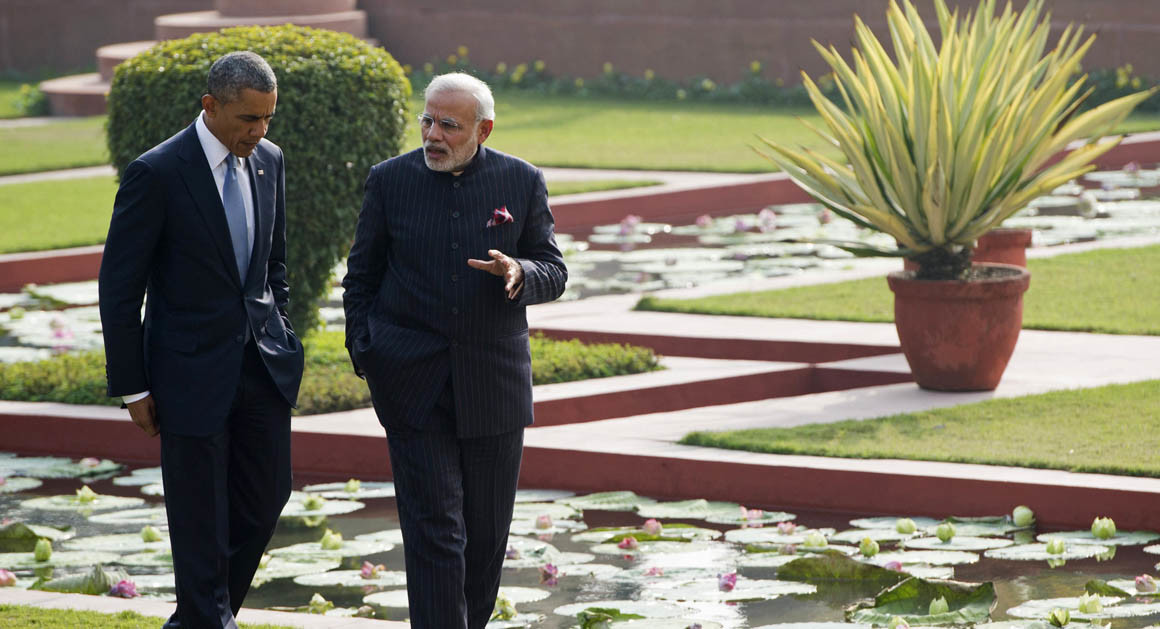US Concerns Spike, No Stroll in the Park: Hearing on 'Religious Intolerance' on Day of PM Modi Visit

NEW DELHI: The atmospherics before Prime Minister Narendra Modi’s scheduled ‘working visit’ to Washington are somehow going a bit awry. As despite the US government’s official ‘wish list’ communalism has again climbed to the top of bilateral relations with influential US Senators making a major issue of what they say is India’s below par record on human rights violations, religious intolerance and trafficking.
The timing for this is not a coincidence as any diplomat will confirm. In what many see as a first, US Senator Tom Lantos Human Rights Commission has organised a hearing that will examine the “current state of human rights in India, challenges to fundamental freedoms and opportunities for advancement” on the day---June 7---that PM Modi will be visiting Washington. The hearing will start at 3pm just after the Prime Minister will have finished a working lunch with US President Barack Obama.
The announcement for the hearing is very categorical: “Yet a wide variety of serious human rights concerns persist. Despite Constitutional provisions abolishing the legal existence of “untouchable” or Dalit castes and tribes, the caste system remains deeply ingrained within Indian society, leading to ongoing discrimination. Dalit communities, which make up a quarter of India’s population, are also disproportionately at risk of suffering from another major human rights concern in India, that of human trafficking. Tens of thousands of individuals, including children, are believed to be trafficking annually within India for the purposes of commercialized sexual exploitation or forced labor.
Religious minorities also face growing challenges. According to the U.S. Commission on International Religious Freedom’s most recent report, “In 2015, religious tolerance deteriorated and religious freedom violations increased in India. Minority communities, especially Christians, Muslims, and Sikhs, experienced numerous incidents of intimidation, harassment, and violence, largely at the hands of Hindu nationalist groups.”
Meanwhile, a large number of international non-governmental organizations supporting a range of causes, including human rights, have been added to government watch lists or had funding cut off by Indian officials. These actions, coupled with perceived crackdowns on groups or individuals critical of the Indian government, have many concerned that the rights to freedom of speech and freedom of association are being increasingly curtailed.”
The full details of the issues to be heard, and the witnesses deposing before the Commission can be seen at: https://humanrightscommission.house.gov/events/hearings/challenges-opportunities-advancement-human-rights-india
Significantly the Lantos Commission hearing comes just after a ranking member of the Senate Foreign Relations Committee Ben Cardin has taken up the issue of religious freedom and trafficking at the highest levels. Cardin in fact grilled the US State Department officials on PM Modi’s visit and wanted to know whether these issues had been, and would be, raised with him. He said that he would certainly speak to the Indian Prime Minister about these concerns when he met at an official function scheduled in Washington for June 7 during the visit.
Senator Cardin was in New Delhi where he again raised the same issues forcefully at a public function. He claimed that extra-judicial killings in India could not be allowed to continue; he spoke of increasing crime against women; of human trafficking; of reported corruption. He was particularly concerned about “religious intolerance” in India saying that there was “greater and urgent need” to address this. The Senator was speaking on the Role of Good Governance in International Relations.
Given the fact that the US State Department Assistant Secretary for South and Central Asian Affairs Nisha Desai Biswal was grilled by the Senate Foreign Affairs Committee on these issues has raised diplomatic eyebrows here. More so as she was compelled to agree in the face of persistent questioning by the Committee members that these issues were of equal concern to the US State Department and would be raised with the visiting Indian Prime Minister.
Ambassador M.K.BhadThis is serious stuff, because if the venerable American lawmakers wade into the cesspool of “religious intolerance” in Modi’s India, they come dangerously close to resuscitating the historical memories about the anti-Muslim riots in Gujarat in 2002.”
The return to the ‘Gujarat flavour’ by influential US Senators, as a senior retired Indian diplomat here said, should ring alarm bells in New Delhi. As he pointed out, the US government is sensitive and responsive to concerns expressed by bodies like the Senate Foreign Relations Committee and US Senator Lantos’ Human Rights Commission. Interestingly while India seems to be celebrating the Prime Ministers visit as an extension of ‘good and strong relations’ and the personal chemistry PM Modi reportedly shares with US President Barack Obama, the signals from Washington spell little else but hard business in an environment of concern as outlined by the Senators.
In the US a working visit is seen as work, and not a stroll in the gardens. In other words, the President will be taking forward his governments wish list that will include defence deals, the long pending Logistics Support Agreement that interestingly the BJP had opposed strongly when it was being pushed by the Congress led UPA government just a few years ago, and cooperation between the two governments in monitoring and patrolling the South China seas. The pressure from Senators Cardin and Lantos are thus, additional, and this time ---unlike the past visits---placed on top of the accompanying agenda.



